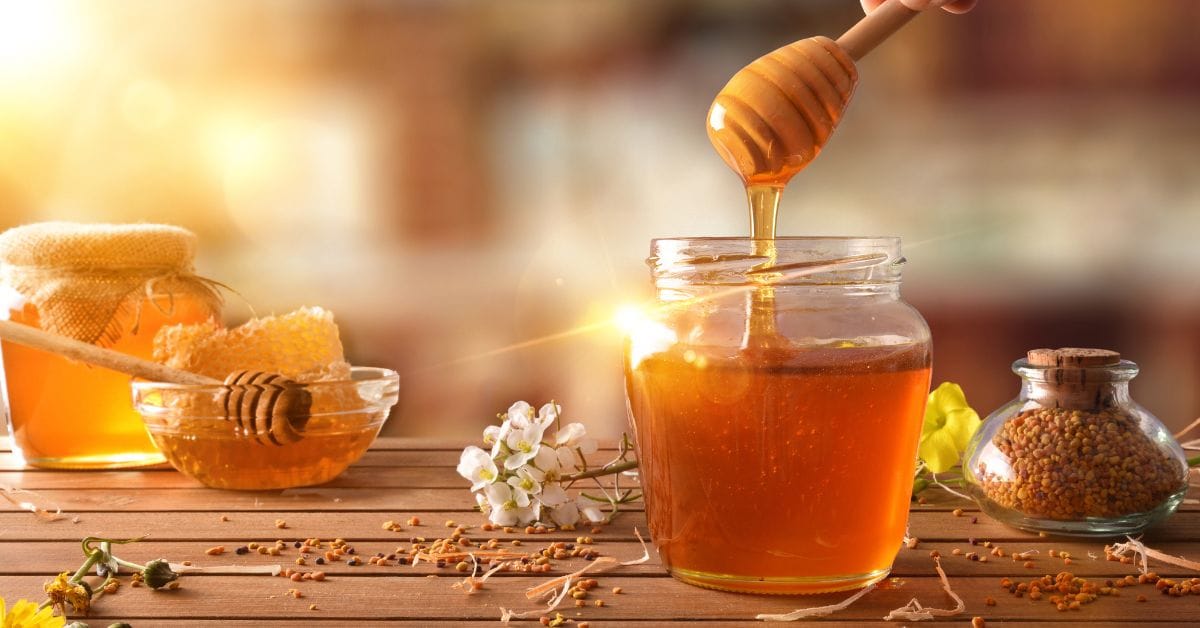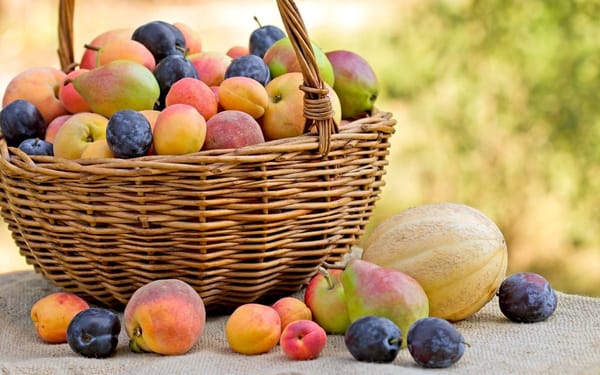Everything you need to know about this liquid gold
We’ve all heard about the wonderful benefits of mānuka honey – it’s been dubbed a superfood that’ll help your sleep, sore throat, and even cuts, thanks to its antimicrobial and antibacterial properties. But a jar of this liquid gold doesn’t come cheap, with some costing close to $3000NZ. It raises the question – why is mānuka honey so superior to its creamy cousins, and is it all just marketing?
We’ve unpacked the truth about this so-called magic superfood to set the record straight.
What is mānuka honey?
Mānuka honey is produced from the nectar of the mānuka plant. Also known as the New Zealand tea tree, it’s native to the country but now grows all over the world. Thanks to its supposed healing properties, there’s massive global hype about mānuka honey, and New Zealand can’t export the stuff fast enough. The honey industry is worth about $500,000,000 to the country’s economy each year, with most of that coming from exporting mānuka honey.

Mānuka: the first-class honey – or is it?
If you’ve been intrigued by mānuka honey before, you may have seen the term MGO. It stands for methylglyoxal – which is found naturally in the nectar of the mānuka plant and is an active compound in the honey. If you buy mānuka honey from a store, it’ll likely have a number next to MGO on the jar representing the amount present. The higher the number, the more expensive the honey – and the more antibacterial and antimicrobial properties it has.
No other commercially produced honey has been shown to contain MGO, giving mānuka its elite reputation. But here’s the thing – one honey sample can have about 200 compounds, and each of those could offer therapeutic benefits. In some tests, other honey types provided the same benefits as mānuka honey – even without the MGO compound. So, depending on why you’re buying mānuka honey, it may be that another, cheaper type would work just as well.
The gap in the studies
Although many studies on mānuka are new and evolving, there is enough research to debunk some common myths.
- Mānuka honey fights antibiotic-resistant infection– promising signs
The deadly bacteria MRSA (methicillin-resistant staphylococcus aureus) is known to be resistant to antibiotics, but studies have shown that it is sensitive to mānuka honey. Topically applied, it could stop bacteria from replicating. However, there’s yet to be any study done on humans – so how reliable are these studies? The only studies showing benefits from mānuka honey have been conducted in a lab or on mice. While these trials are promising, there’s still lots more to research.
- Mānuka honey heals wounds – good evidence
Most studies on mānuka honey look at how it performs as a wound treatment. The consensus is that it’s pretty amazing stuff. Applying sterile mānuka honey to a wound has been shown to aid the healing process, thanks to its antimicrobial and antibacterial properties. The catch is that it needs to be applied rather than consumed – studies show that the honey will likely have no impact on healing after your body digests it.
- Mānuka honey makes you healthier – myth
So, can eating mānuka honey boost immunity, curb your hay fever, and improve your sleep? We’d say that’s marketing hype. Sure, honey has a host of benefits, and if you include it as part of a healthy, balanced diet, it’s likely to provide some goodness and nourishment. But the antimicrobial properties are broken down when digested and are not active in the body, so there’s a grey area on how much of a superfood this stuff is. Plus, there have been next to no studies proving any of these claims. So, if you’re buying expensive mānuka honey hoping to get these benefits, you can save some money and switch to good old clover.
- Mānuka honey improves skin – good for acne and eczema
When it comes to your skin, we know that topically applying mānuka honey can improve conditions like acne and eczema but it isn’t likely to do much for general health and beauty. Either way, you’ll need to buy active honey packed with all the nutrients and antimicrobial properties to see results. That means it’s best to buy it from a health food or drug store rather than with your groceries.
- Mānuka honey soothes a sore throat – other honeys do too
Mānuka honey research suggests that it needs to be applied topically to work its magic. If you swallowed honey, it would pass your sore throat and provide some comfort, but it doesn’t stay in your throat, so relief may be temporary. The best honey for soothing a sore throat? Studies found it doesn’t make a difference what type of honey you use – anything will do.

The bottom line on mānuka honey
If you need a small bank loan to invest in your honey, you’re probably getting roped in by clever marketing. If it’s a topical treatment you’re after, then mānuka honey is undeniably a tool to keep in your medical kit, as long as it’s fresh, unheated, and unprocessed. But for fighting colds, coughs, and general wellness niggles, regular honey will do just as well – that is, it will have almost no benefit.










Leave a reply
You must be logged in to post a comment.